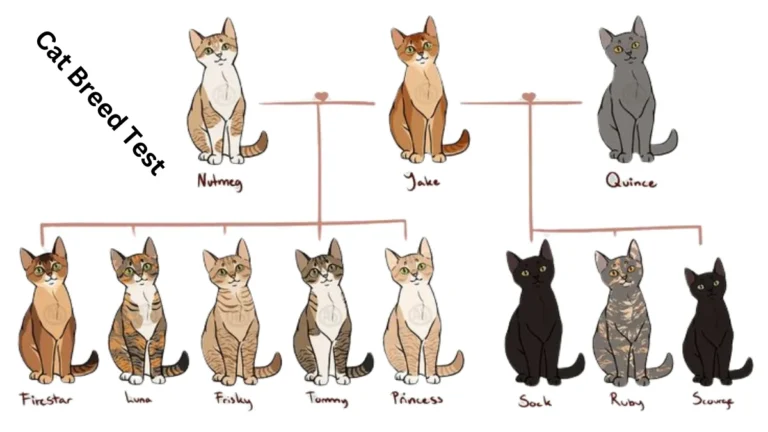Introduction:
When choosing a house cat, it’s essential to consider breeds that align with your lifestyle and preferences. Cats come with diverse personalities, grooming needs, and energy levels, making some breeds more suitable as indoor companions. This guide will explore the best house cat breeds, their characteristics, and tips for creating the perfect indoor environment for your feline friend.
Why Choosing the Right House Cat Breed Matters
Selecting the right cat breed ensures harmony in your household. Cats vary in temperament, activity levels, and care requirements, making it crucial to match a breed with your needs. While some breeds thrive in quiet homes, others demand playful engagement.
When considering breeds, it’s also essential to focus on cat training, as training helps maintain good behavior and strengthens the bond between you and your pet. For training tips, visit Cat Training.
Characteristics of a Good House Cat
A good house cat should adapt well to indoor living, be relatively low maintenance, and get along with family members, including other pets. Important traits include:
- Affectionate nature: Breeds that enjoy companionship make the best house pets.
- Low grooming needs: Breeds with short hair or minimal shedding are ideal for busy owners.
- Playfulness and intelligence: Cats with these traits can thrive indoors with proper stimulation.
For more insights into maintaining your cat’s health and happiness, check out Cat Healthcare.
Top 10 House Cat Breeds
1. Persian Cats: The Gentle Aristocrats
Persian cats are known for their long, luxurious coats and calm demeanor. They enjoy lounging indoors and are perfect for quiet households. Persians require regular grooming to maintain their stunning fur, but their affectionate personality makes the effort worthwhile.
2. Maine Coons: The Friendly Giants
Maine Coons are one of the largest cat breeds, boasting a friendly and adaptable nature. Despite their size, they are gentle and thrive as house cats. These cats are intelligent and playful, making them a joy to have indoors.
3. Ragdolls: The Ultimate Lap Cats
Ragdolls are famous for their docile and affectionate personality. These cats often follow their owners around and enjoy being carried. Their striking blue eyes and soft, semi-long coats make them visually appealing and easy to love.
4. British Shorthair: A Low-Maintenance Companion
British Shorthairs are independent and undemanding, making them ideal for busy families. Their plush coat requires minimal grooming, and they adapt well to apartment living.
5. Siamese Cats: Vocal and Affectionate
Siamese cats are known for their intelligence and talkative nature. They form strong bonds with their owners and enjoy interactive play. Their sleek bodies and striking color points make them elegant indoor companions.
Providing the Best Care for Your House Cat
To ensure your cat thrives indoors, provide a stimulating environment with toys, climbing structures, and cozy resting spots. Nutrition is equally important. For guidance on feeding your feline, explore Cat Foods.
Health and Wellness
Regular checkups and vaccinations are vital for a house cat’s health. Indoor cats may live longer than outdoor ones, but they can still face health issues. For expert advice, visit Pet Insurance to learn about protecting your cat’s health.
Litter Box Etiquette
Keeping the litter box clean is crucial for your cat’s comfort and hygiene. Choose a spacious litter box, place it in a quiet area, and clean it regularly. A well-maintained litter box prevents behavioral issues and keeps your home odor-free.
FAQ: About the Best Breed House Cat
What is the best house cat breed for families with children?
Breeds like Ragdolls, Maine Coons, and British Shorthairs are excellent choices for families with children. These cats are patient, friendly, and adapt well to playful environments. Ragdolls, in particular, are gentle and affectionate, making them perfect companions for kids.
For more insights into choosing family-friendly breeds, visit Cat Breeds.
How can I ensure my house cat stays healthy indoors?
To keep your cat healthy, provide:
- A balanced diet tailored to their needs.
- Regular vet checkups and vaccinations.
- An enriched environment with toys and climbing structures.
For additional tips, explore resources on Cat Healthcare and Cat Foods.
What should I do if my cat avoids the litter box?
If your cat avoids the litter box:
- Ensure it’s clean and placed in a quiet area.
- Check for any health issues with a vet.
- Consider the litter type; some cats have preferences.
For detailed advice on cat training and behavior, visit Cat Training.
Conclusion:
When choosing a house cat, consider a breed that aligns with your lifestyle. Each cat has unique traits, so learning about breeds can help you find the perfect match. Explore more about cat breeds at Cat Breeds.
If you’re looking for more tips and advice on cats, visit About Us or contact us through Contact.
Happy cat parenting!




